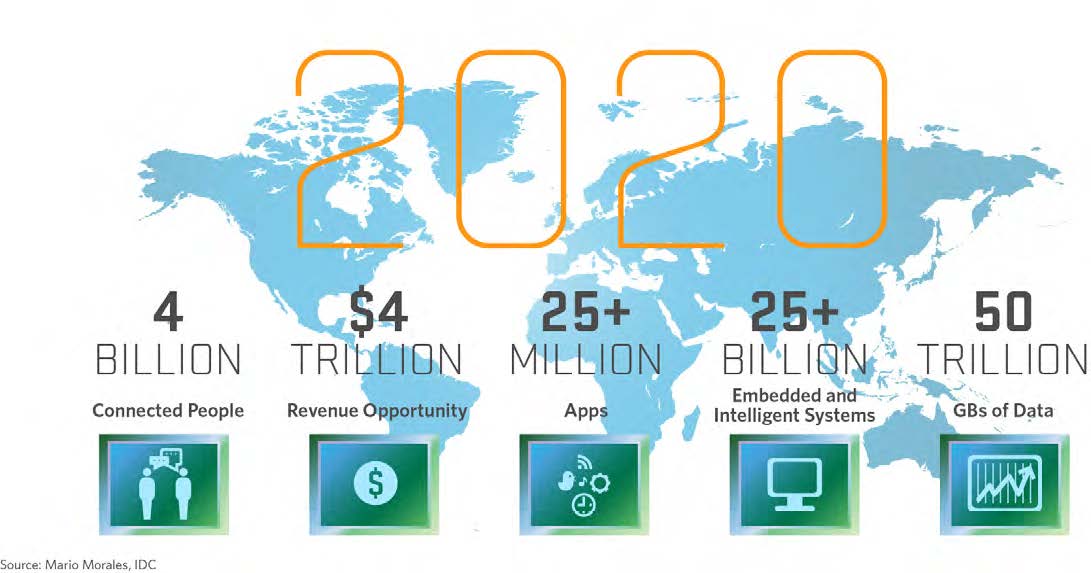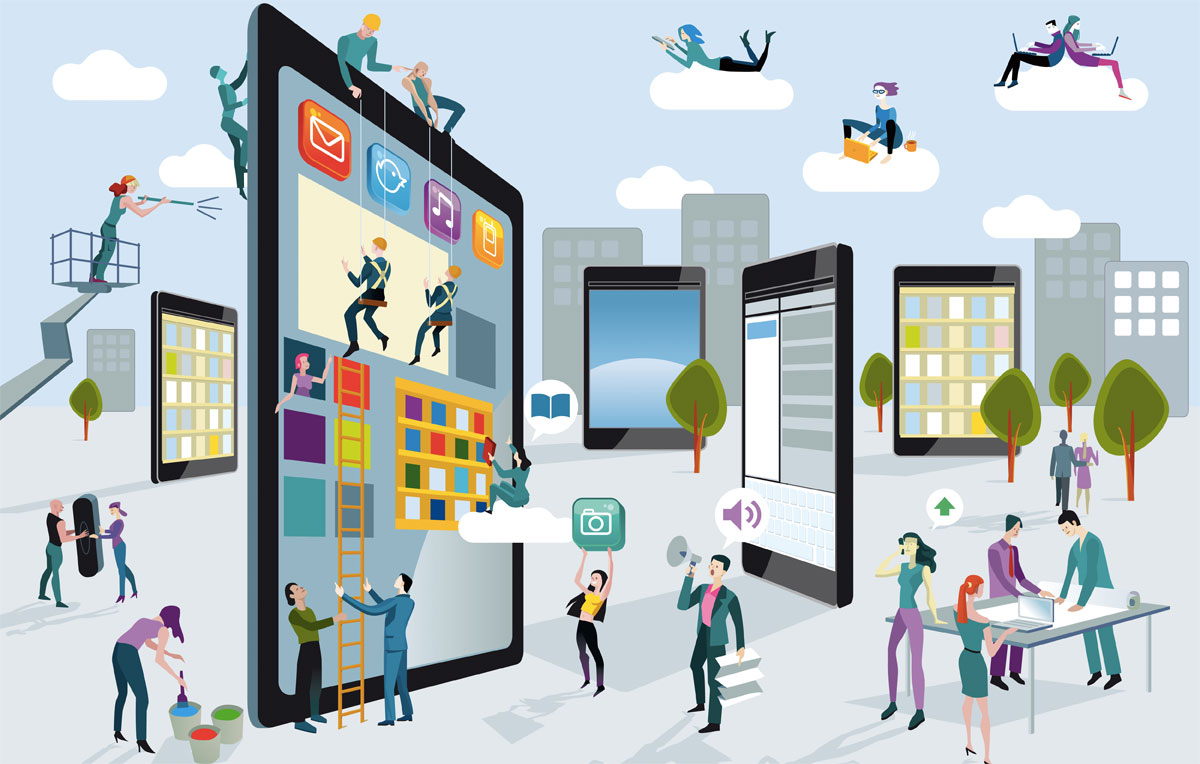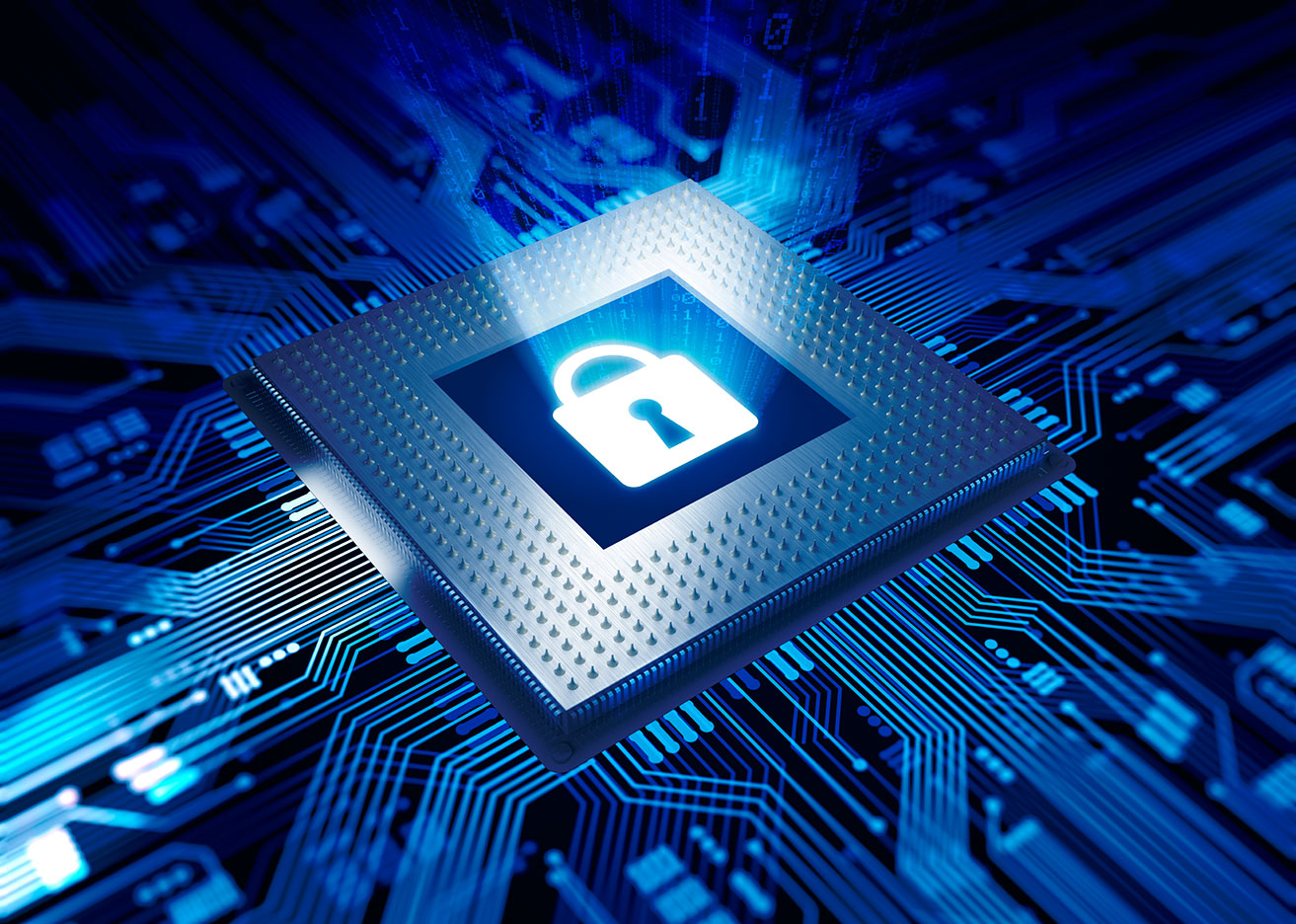Internet of Things - opportunities and challenges for businesses
Internet of Things (IoT) has been the focus of attention for many years. Not only is the cliché saying that an air conditioner can bring it when it realizes that you have run out of something, few people have realized the true nature of IoT and its meaning to consumers as well as businesses - not just a general statement that it makes a lot of sense.
The following article will show what IoT really is, how it has evolved today, where it can go and some related issues that businesses need to care about.
What is the Internet of Things?
Beyond the idea of a cliché problem like the refrigerator mentioned above, IoT is a new step in the development phase of widespread computing (ubiquitous computing). Bill Gates once dreamed that every home has a computer and at least in Western countries, that dream has basically come true for several years.Most people have a computer in their pockets under the shape of a smartphone and an ever-growing number of people wearing devices like Apple Watch or FitBit.
Smart houses that provide heat and light through products like Hive and Nest have also integrated computers into the home network. The key is that all of these devices are interconnected and connected to the Internet, so we can send information to online repositories and from there can operate remotely .

That's just the starting point. The non-stop miniature process and the ability to integrate functions mean that chips with sensors and wireless or wired network connections will become cheaper and smaller with a dizzying speed. More and more everyday devices that were not previously used for computing will now be integrated or new devices will be created based on those features. In November 2015, Gartner calculated that there will be about 6.4 million items connected in 2016 , up 30% from 2015 and the number will be 20.8 million in 2020 , double the number of smartphone markets. , computers, tablets, connected cars and devices can be worn on wearables. Some people even predicted that the number of 2020 could double that number.
IoT can open many new business areas. Tracking exercise is probably too familiar to many users, but more complex medical management tools promise a revolution in health care - not just in terms of ensuring that Customers receive appropriate medical care but also store data, creating a huge database . Controlling the environment at both the office and at home will be very important and asset tracking will also become smarter with more details. However, according to Business Insider, only $ 50 million in revenue, equivalent to 8%, comes from hardware devices . Software and infrastructure will account for the majority of the promised 1.7 trillion dollars in 2019.

Internet of Things brings a lot of data
The reverse side of IoT is the use of almost all devices that are used to collect data and send over a connected network. FitBit bracelets collect activity and analytics data on the website, from which users can target or compete with other users. Hive records energy usage, allowing homeowners to use gas and electricity more efficiently by controlling heat. Smart signs track traffic, so that roads can be used more efficiently.
This is a clear opportunity for businesses to specialize in data management and connectivity for more efficient use. The amount of online data is about to explode. IDC and EMC estimate that by 2020, there will be 44 trillion gigabytes of data in the world and 10 of them are coming from IoT devices . This is equivalent to 4.4 trillion gigabytes, and is equivalent to the estimated world data capacity in 2013. In other words, the capacity of all online data centers in the year 2013 is only enough to store IoT data in 2020 . This will have a big impact on how data centers work so they can withstand the amount of data stored in the cloud when these data are created and exchanged.

Most importantly, it requires a connection to help all these devices communicate with each other, so that data can be sent to and from the online data store. The created IPv6 protocol has somewhat thought of this future when it supports 2 128 addresses, compared to only 2 32 addresses of the IPv4 protocol . Data traffic on 1 personal device may not be too much. Bluetooth can also be used with many sensor networks that require low power, and many of them are also uploaded scattered and not stream all information at once.
However, summarizing billions of online devices by 2020 and all the bandwidth will be huge. Carefully managing network connection capacity will be extremely essential.

Is there security for IoT?
Another concern about all devices connected to the Internet, online storage and communication through these data centers is security. Experts have described gaps in devices from dolls that can connect WiFi to cars that can access the Internet. These are all theoretical issues and not the ones that happened but are clearly likely to happen. A Barbie doll may not be a big deal, but a self-driving car or hacked medical device can pose real dangers to life. Some analysts argue that a completely separate network for IoT should be used, with products already on the market for this purpose.
However, although that means that costs and bandwidth must be adjusted to suit the needs of IoT (when compared to communication IT devices), it also denies that IoT must "piggyback on the back". spike phenomenon of ubiquitous network for over a century. Part of the power of IoT is that devices connected to the network infrastructure are available such as WiFi, Bluetooth, 3G or 4G. So the problem is that these networks need to improve performance as well as security to meet the security requirements of IoT .

Internet of Things probably deserves to be included in Gartner's Hype Cycle model. There is no doubt that it will gradually become an important phenomenon in the coming years. In fact, the revolution has begun, though it seems to remain hidden in the background. Its impact on businesses is not unrecognizable, IoT also requires network infrastructure and poses many security issues . So while business opportunities are more and more attractive, businesses still need to consider a specific, clear strategy for their Internet connections.